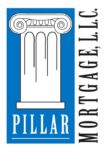In a vigorous free market, government-backed and privatized lenders are always in competition for home buyers’ business. This then drives up or down the average monthly interest rates on mortgage loans.
The average interest rate on 30-year fixed mortgage loans has been near historic lows since 2013 to 2021 but has then seen an increase in 2022, although they are still at historically low levels.
It’s important for housing market participants to comprehend rising mortgage rates, since they control every aspect of purchasing a home.
Main Points
- When we have a strong economy, interest rates seem to increase along with its growth. Increased interest rates translate into higher mortgage loan costs.
- Increasing rates make homes much more expensive for purchasers, thus reducing the demand for home buying.
- A reduction in demand also negatively affects sellers since they need to decrease the prices of their homes so as to attract buyers.
- In a situation where the economy grows fast enough, increasing mortgage rates may not have a great effect on house prices and the value of property, given that wages and salaries congruently grow as well.
Increasing Interest Rates and Home buyers
In real estate, the rising interest rates make purchasing or selling of homes more difficult, whereas dropping interest rates make it easier for buying and selling.
Increasing Interest Rates and Sellers
Increasing mortgage rates affect sellers also, although in a different way. For instance, if you want to sell your house for $400,000, you are most welcome to list your home at that price. However, because of the rising interest rates, possible buyers can only afford your home at $355,000.
Increasing Interest Rates and Property Value
Increasing interest rates have a very clear influence on buyers and sellers. Theoretical circumstances show that housing prices and property value directly show a relationship to mortgage rates, however, what triggers the two situations is the health of the economy.
If the economy grows fast enough, increasing mortgage rates can’t have as much of an effect on housing prices and property value. For instance, if mortgage rates rise by one point, the monthly payments will increase by $238; nevertheless, a powerful economy permits employers to raise salaries enough to aid compensate for the increasing interest rate.
As long as the economy is continuously growing, and the economy is continuously seeing job and wage growth, an increase in interest rates shouldn’t slow the housing market.
Increasing Interest Rates and Real Estate Investing
As mortgage rates increase, the outcome on real estate investing can be positive. The market for rental houses increases since only few people qualify for mortgages. Rising interest rates reduce prices, therefore it can at times be better to purchase during a rising interest rate situation.
Additionally, as interest rates increase, only a few real estate transactions will take place due to lending standards being tighter. Therefore, more people will be in need of rental houses up to when they can afford a mortgage.
What Happens to Mortgages When Interest Rates Increase?
An increase in interest rates lead to mortgages becoming more expensive. When interest rates increase, mortgages become more expensive as the interest rate on mortgages also goes up. This makes buying a home become costlier for buyers. This leads to a collapse in the housing market. Sellers then decrease the price of their houses for them to attract buyers.
Are Increasing Interest Rates Good for Mortgage Companies?
Sure, increasing interest rates are good for home buying lending companies. A higher interest rate means more interest earned by the mortgage company/bank. This creates additional revenues for the bank. On the other hand, when interest rates are so high, this results in a drop in mortgage demand, which then hurts mortgage companies due to lack of business.
Which is Better Between a Lower Closing Costs or a Lower Interest Rate?
Determining whether it is better to have lower closing costs or a lower interest rate will come down to the exact numbers and math. Generally, the best option is what results in the total overall cost of your home purchase being less. Typically, this would be a lower interest rate, as you will pay that interest rate over a long period of time if you don’t refinance. This can result in lower monthly costs and lower overall interest paid on the mortgage.
Conclusion
With interest rates stagnating near historic lows, this works so well for buyers, in addition today’s market shows some of the inexpensive debt a buyer can reach in the market.
Most importantly, getting the right mortgage with the best rates highly depends on finding the best mortgage lender in the market. Pillar Mortgage can and is ready to help you through every step of the entire mortgage process from start to finish. Call us today!

